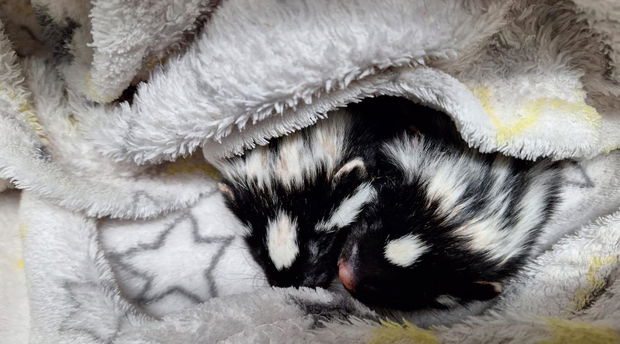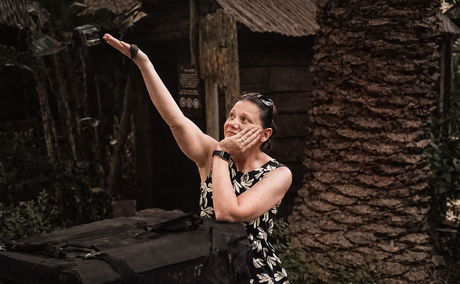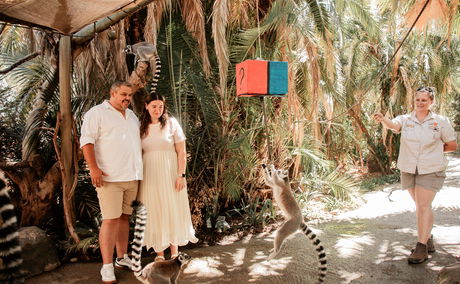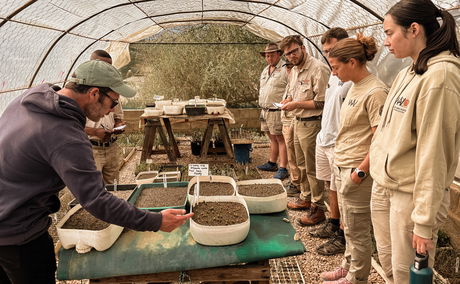In early December, a male bat weighing just 1 gram arrived at Cango Wildlife after being attacked by a cat and brought in by a concerned member of the public. At that weight, he fit easily into the palm of a hand. Fragile. Silent. Fighting for survival long before he reached our care. Whenever wildlife has contact with a cat, immediate veterinary care is essential. Cat saliva carries bacteria that can be...
World Animal Day

On this World Animal Day, we celebrate the beauty and diversity of the animals that share our planet. From majestic lions to delicate butterflies, every creature plays a vital role in nature's intricate web of wonder.
This week, we were gifted with another opportunity to shed light on another unique species and their importance. Have you ever seen a Striped Polecat? If not, prepare to have your heart melt. These two little kits were in our care for a few days, after being found near a home in Calitzdorp. The homeowner spotted the babies and kept an eye on them for quite some time, but their mum never returned. She reached out to us for advice, and we encouraged her to wait a little longer. Sadly, the mum did not return, and just before dark, the babies were taken indoors to be tended to during the unexpected ‘Spring cold-front’. Even still, there remained no signs of mum, and arrangements were then made to bring the kits to Cango Wildlife Ranch for assistance. Upon arrival, the kits were immediately attended to by our doting curators. They were fed and then placed in a warm incubator, where they had blissful naps.
Striped Polecats are also commonly referred to as African Polecats, Cape Polecats, Zorillas or African Skunks. They are found throughout Southern Africa and are close relatives of the African Weasel, but they differ in that they are larger, their coat is longer, and they have three characteristic white dots on their head. Adults measure up to 65cm in length, of which almost half is just their tail. They generally weigh in between 600 grams to 1.5 kilograms.
Striped Polecats are legendary for their ability to emit a foul-smelling substance from its anal glands for protection, much like an American Skunk. The odour is so powerful that people have observed them standing their ground against grown lions who simply curl their lips in distaste and opt to move on instead of attacking the stinky creature.
After a few days in our care, with healthy appetites and cuteness galore, we made the decision to transfer the kits to Tenikwa Rehabilitation Centre in The Craggs. Our onsite Animal Care Centre had insufficient space for the kits, and the goal is always first and foremost opting for the best outcome for the animals being rescued, which in this case is further rehabilitation, minimal human imprinting, and if all goes to plan, a successful wild release. These miraculous little creatures sparked much interest amongst our staff and we were all sad to see them go, but Tenikwa welcomed them with open arms, and we are all excited to see them grow in there care as they prepare them for rewilding.
Together, we can make a difference. Every step toward protecting animals and their habitats is a step toward a future teeming with wildlife and biodiversity. So let’s embrace this day as a call to action—whether through conservation efforts, reducing our carbon footprint, or spreading awareness of the threats to wildlife. 🌿🦋🐘
CONSERVE. CARE. CONNECT.
Further Reading
On the first of February, Monique and Rouan Engelbrecht chose to celebrate one of life’s most meaningful milestones in a way that reflected their values. They hosted a conservation conscious gender reveal at Cango Wildlife.
At Cango Wildlife, conservation isn’t something we only talk about; it’s something we’re constantly trying to refine, improve, and live out in practical ways. That includes looking inward: examining how we manage our own environmental footprint, how we treat and restore the land we steward, and how we align our practices with the bigger global sustainability framework - from South Africa’s climate goals to the guiding principles of UN-aligned sustainability and the...















Share This Post